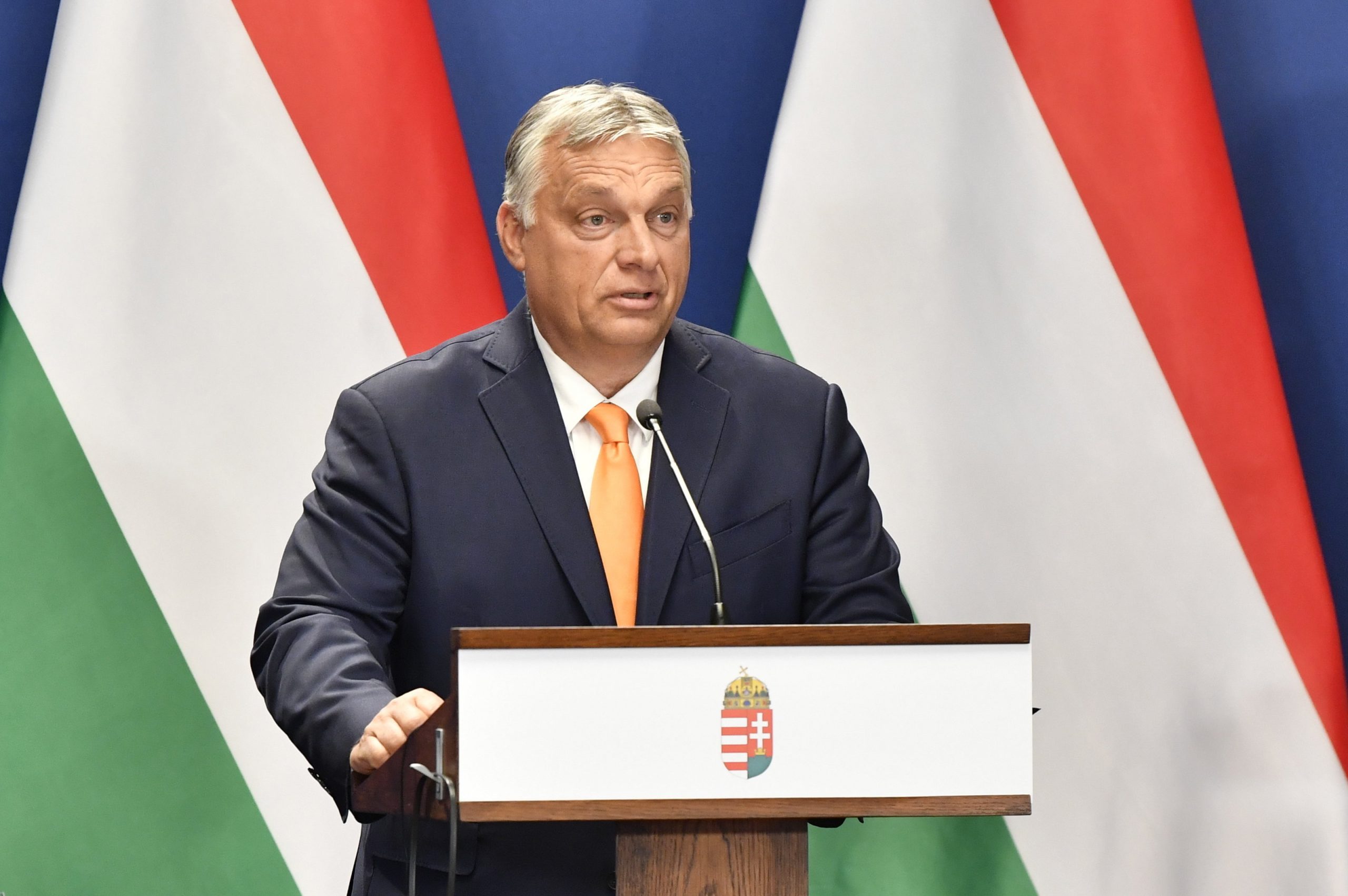
Hungary is the only European Union member state willing to pay in rubles for continued Russian gas shipments. Prime Minister Viktor Orbán told a press conference on Wednesday that “if the Russians want payment in rubles, we will pay in rubles.” Other leaders of the European Union have refused Vladimir Putin’s demands to pay in the Russian currency following his warning that he would otherwise cut supplies to Europe. The Ukrainian foreign ministry has criticized the Hungarian government’s decision, classifying it as “an unfriendly stance” against Ukraine.
Western sanctions have severely hampered the value of the Russian ruble, and as a reaction, Putin is demanding that those purchasing gas pay in the Russian currency. The rest of the Union rejected his proposal, since it was agreed that payment would be in euros.
Hungary Alone in Agreeing to Ruble Payments
The Hungarian government has emphasized that if Hungary has access to Russian gas, the country’s energy resources remain uncompromised, and utility price cuts can remain on the agenda. It is for this reason that it has argued for its opposition to potential EU sanctions on Russian energy imports.
Related article
MOL: Immediate Withdrawal from Russian Oil Would Create Supply Problems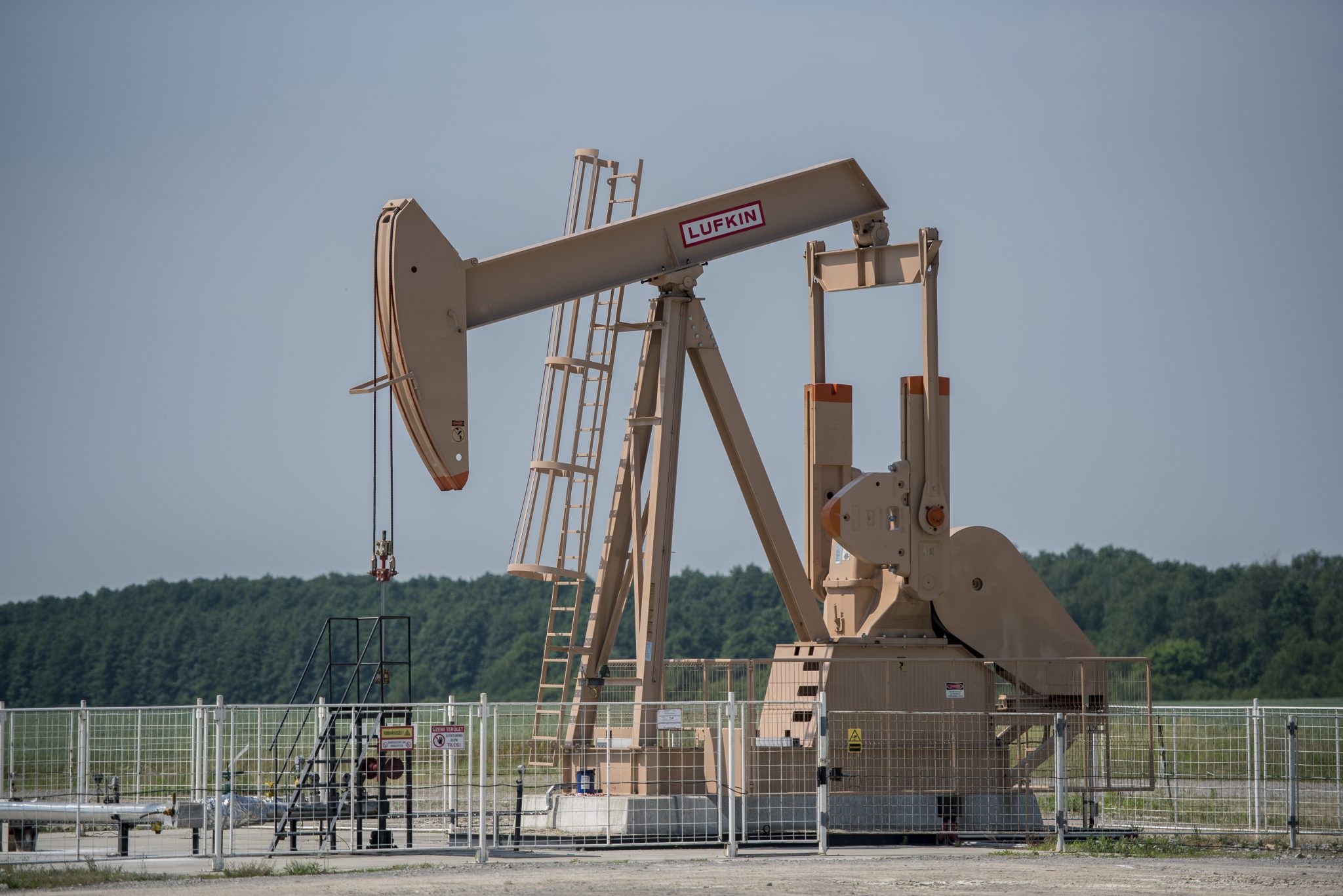
Hungary's sole crude oil distillation plant, the Danube Refinery, could be converted to process 100 percent alternative crude oil, but the lead time could be up to 2-4 years, with risks being kept to a minimum, and would involve hundreds of millions of dollars in additional costs.Continue reading
While it was previously argued that Russian gas is a cheaper alternative to Hungary’s other options, Prime Minister Viktor Orbán now states, “the point is not to have Russian gas at a better price, but for there to be Russian gas in Hungary, and this cannot be compromised.” Evidence from import statistics shows that Russian gas now costs Hungary three times as much as it did at any time in the last roughly 25 years.
Every other EU country, as well as the G7, has rejected Putin’s demands to pay in rubles. Payment by rubles would stabilize the Russian foreign exchange rate, a major success for Russia, considering that it currently does not have access to around half of its foreign exchange reserves because of Western sanctions. Thus, paying in rubles would be counterintuitive with the EU’s existing sanctions on Russia.
Related article
FinMin: Russian Energy Supplies Can't be Replaced Overnight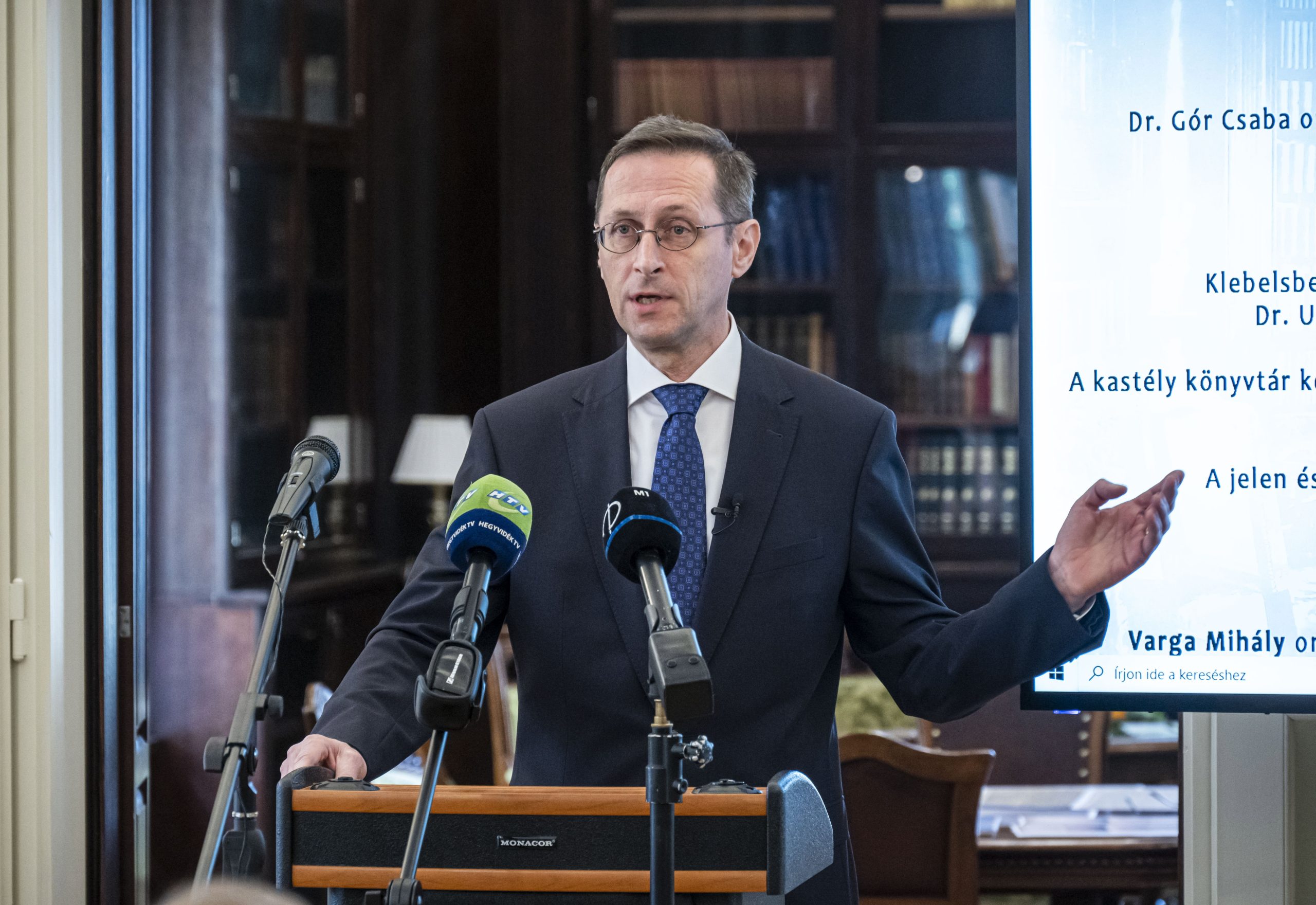
Varga said the transition to alternative energy sources was a long process requiring developments.Continue reading
Since these agreements follow official contracts that dictate payments to be made in euros, European countries are not obligated to pay in any other currency. Furthermore, at the moment, Russia is reliant on Europe to purchase its gas, and Europe is reliant on Russia to sell its gas. Shutting off gas exports to Europe would be a terrible omen for the Russian economy, which has already been hit hard by sanctions.
Ukraine Says Hungary is Helping Putin
The Ukrainian foreign ministry has heavily criticized the Hungarian government for its actions related to the Russian-Ukrainian war thus far. In a statement by the ministry, its spokesman, Oleg Nikolenko, accused Hungary of helping Russian President Vladimir Putin in his war against Ukraine.
Hungary’s agreement to pay for energy in rubles falls into Russia’s plan to save its economy against international sanctions, the spokesman writes. “The Russian military machine needs resources in order to continue its war against Ukraine,” Nikolenko states, arguing that if Europe pays in rubles Russia will most certainly have the necessary resources.
With relation to this we consider the statement to pay for Russian gas in rubles to be an unfriendly stance against our country. Such statements go against the clear stance of the European Union too, as the Union refuses to satisfy Russia’s whims.”
The spokesman emphasized that Ukrainians and Hungarians share centuries of historical, political, economic, and cultural ties, adding that 150 thousand Hungarians live in Ukraine. “But both peoples are damaged by the logic which currently guides Budapest politicians,” he added.
Related article
Orbán's Budapest Peace Talks "Media Stir-up," Zelenskyy's Advisor Says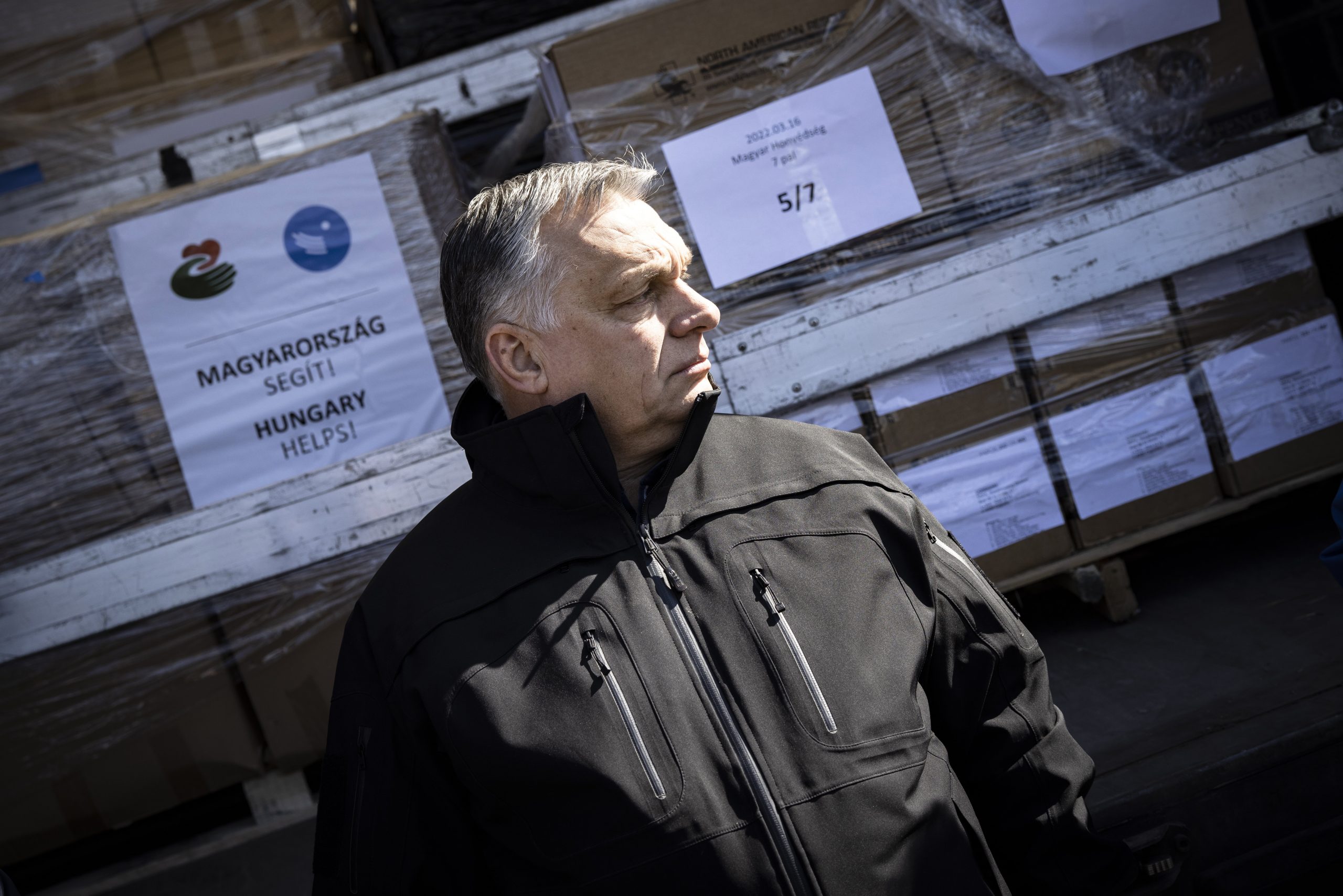
Mykhailo Podolyak explained that official channels for negotiations already exist.Continue reading
In light of this issue, the foreign ministry writes, Ukraine calls on the Hungarian government to stop its destruction of unity in the EU, to support sanctions against Russia, to provide military aid to Ukraine, and not to provide the Russian military machine with more resources.
Orbán: Europe is Going to “Pay the Price” for Sanctions
In his press conference on Wednesday, Viktor Orbán stated that Hungary shares the position of the European Union, and condemned Russia as the aggressor in this war. He added that Hungary and Russia have built well-functioning ties which his administration is trying to save, “but the sanctions and western pressure could be so strong that there may be nothing left.”
Orbán said that “Ukraine exists, we know them, they are Hungary’s neighbors. They are defending their homeland in a tough fight.”
Related article
PM Orbán: 'We See Hungary's Future in EU, NATO'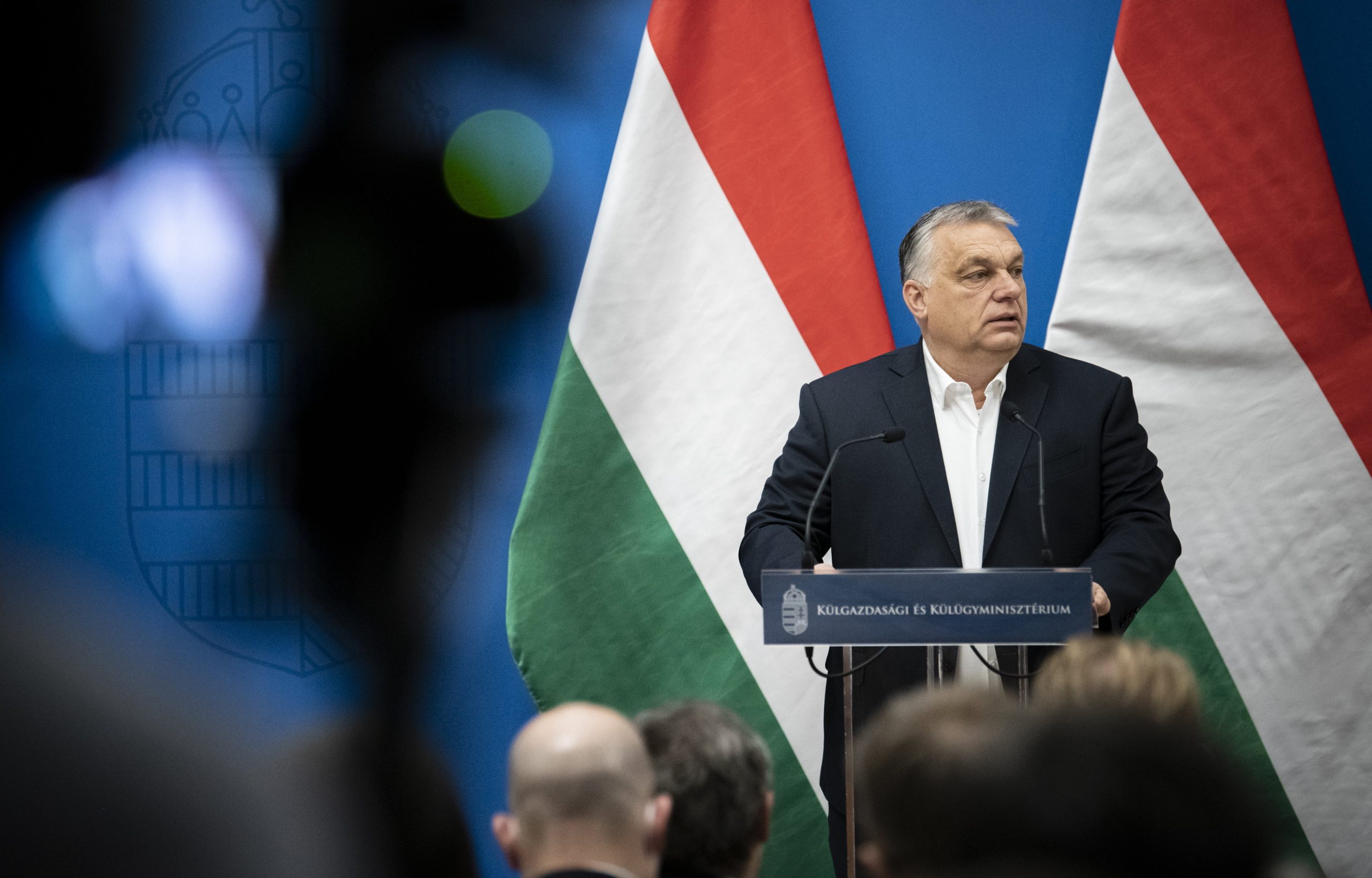
High energy prices are a consequence of the war in Ukraine and will remain so as long as the war continues, Orbán said, proposing the suspension of the EU's administrative system "irrespective of the purpose of its introduction".Continue reading
According to the prime minister, Hungary needs to ensure long-term gas supplies from Russia, and thus energy sanctions are not in line with Hungarian policy. He added that Europe is going to “pay the price” for sanctions. “A serious economic crisis is unfolding for a number of reasons,” He said, “with the major one being the sanctions applied on Russia.”
Featured photo by Zoltán Máthé/MTI




